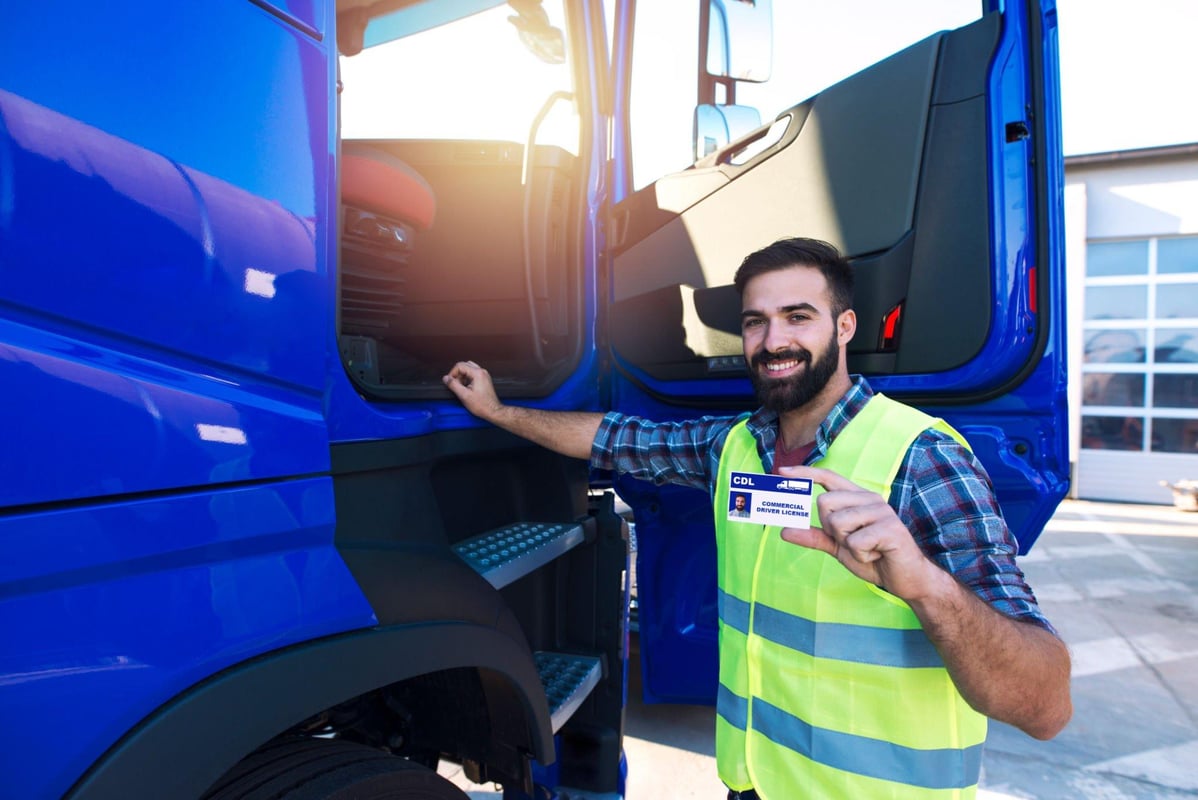
Financial aid (may be available)

No cost info

Financial aid (may be available)

Financial aid (may be available)
$3,600 total
No cost info
No cost info
If you are looking for CDL-B classes in Pittsburgh, you are on the right track toward a fulfilling career in commercial driving. This blog post aims to provide comprehensive information about CDL-B, the training requirements, what you can expect from these classes, and how to select the right class for you. We also offer insights on related job opportunities and additional classes you can take after obtaining your CDL-B. All this information is brought to you by Dreambound, the largest platform for students to find vocational training programs.

CDL-B is a type of Commercial Driver's License that authorizes you to operate commercial vehicles weighing more than 26,001 pounds or vehicles that can carry 24 passengers or more. With a CDL-B, you can drive straight trucks, dump trucks, delivery trucks, utility trucks, and small buses.
The requirements for CDL-B training vary from state to state. In Pennsylvania, the general requirements include:
You must be at least 18 years old for intrastate driving and 21 years old for interstate driving.
You must have a valid Pennsylvania driver's license.
You need to pass a Department of Transportation (DOT) medical examination.
You must pass both the written knowledge test and the road skills test.
When looking for a CDL-B class, consider the following:
Accreditation: Make sure the class is accredited by the state of Pennsylvania.
Course Duration: The course should provide ample time for both classroom instruction and behind-the-wheel training.
Instructor's Experience: The instructors should be experienced commercial drivers who can provide real-world insights.
Job Placement Assistance: Some classes offer job placement assistance, which can be a big help when you're starting your career.
In a typical CDL-B class, you can expect a mixture of theoretical education and practical training. The theoretical part includes learning about vehicle inspection, basic controls, shifting techniques, etc. Practical training involves hands-on experience driving a commercial vehicle under the supervision of an instructor.
The certification process for CDL-B involves several steps:
Completing a state-approved training course.
Passing the written knowledge test.
Successfully completed the skills test, which included a pre-trip vehicle inspection, a basic controls test, and a road test.
After obtaining your CDL-B, you can find employment in various sectors, such as trucking, construction, delivery services, and public transit. Numerous job boards and employment websites can assist you in finding relevant job opportunities.
Once you have your CDL-B, you can consider taking additional classes to enhance your skills and employability. For instance, a Hazardous Materials (HazMat) endorsement allows you to transport hazardous materials, and a School Bus (S) endorsement permits you to drive a school bus.
Upgrading to CDL-A: If you want to drive larger vehicles, you can consider upgrading to a CDL-A, which allows you to operate any combination of vehicles with a Gross Vehicle Weight Rating (GVWR) of 26,001 pounds or more.
Medical Examiner's Certificate: As a commercial driver, you need to maintain a valid Medical Examiner's Certificate. This is to ensure that your health is up for the challenge of handling such a physically demanding job.
Driving Record: Your driving record can significantly impact your employability as a commercial driver.
If you want to diversify your skills or pursue a different career path, you can consider other vocational training programs. For instance, you can train to become some of these mentioned careers:
Getting your CDL-B can open new doors of opportunities in the commercial driving sector. It's essential to choose the right class that fits your career goals and provides comprehensive training. Remember, your journey doesn't have to stop at CDL-B. There are many other opportunities and additional classes you can explore to enhance your skills and employability. Whether it's driving a school bus, transporting hazardous materials, or even shifting your career path altogether, the possibilities are endless.
Navigate the certification journey in this field with Dreambound's detailed guides, each crafted for various cities. For a deeper understanding of the process in other states, our additional guides may be able to help.
If you're exploring various professional paths, Dreambound has in-depth guides to help assist you. Explore a few of these resources below.
Dreambound's platform allows prospective students to find the right educational program for them through searching, filtering, and connecting with our extensive selection of career & technical education partners.
Dreambound has over 70 programs across healthcare, technology, business, and industrial trades. This includes programs such as Medical Billing, Cybersecurity, and welding.
Some of our schools offer financial aid for those who qualify. Many others offer payment plans, where you can pay the cost of class over time.
Yes, Dreambound offers many online programs. On Dreambound's search, you can filter by online, in-person, and hybrid (part online, part in-person).
Dreambound is completely free for you to use! We are supported by schools and organizations who pay to advertise on our website, so we can offer all of our career resources for free.